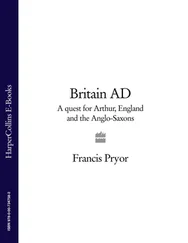Неизвестный автор - The Anglo-Saxon Chronicle
Здесь есть возможность читать онлайн «Неизвестный автор - The Anglo-Saxon Chronicle» — ознакомительный отрывок электронной книги совершенно бесплатно, а после прочтения отрывка купить полную версию. В некоторых случаях можно слушать аудио, скачать через торрент в формате fb2 и присутствует краткое содержание. Жанр: foreign_prose, История, foreign_edu, foreign_antique, на английском языке. Описание произведения, (предисловие) а так же отзывы посетителей доступны на портале библиотеки ЛибКат.
- Название:The Anglo-Saxon Chronicle
- Автор:
- Жанр:
- Год:неизвестен
- ISBN:нет данных
- Рейтинг книги:4 / 5. Голосов: 1
-
Избранное:Добавить в избранное
- Отзывы:
-
Ваша оценка:
- 80
- 1
- 2
- 3
- 4
- 5
The Anglo-Saxon Chronicle: краткое содержание, описание и аннотация
Предлагаем к чтению аннотацию, описание, краткое содержание или предисловие (зависит от того, что написал сам автор книги «The Anglo-Saxon Chronicle»). Если вы не нашли необходимую информацию о книге — напишите в комментариях, мы постараемся отыскать её.
The Anglo-Saxon Chronicle — читать онлайн ознакомительный отрывок
Ниже представлен текст книги, разбитый по страницам. Система сохранения места последней прочитанной страницы, позволяет с удобством читать онлайн бесплатно книгу «The Anglo-Saxon Chronicle», без необходимости каждый раз заново искать на чём Вы остановились. Поставьте закладку, и сможете в любой момент перейти на страницу, на которой закончили чтение.
Интервал:
Закладка:
A.D. 501. This year Porta and his two sons, Beda and Mela, came into Britain, with two ships, at a place called Portsmouth. They soon landed, and slew on the spot a young Briton of very high rank.
A.D. 508. This year Cerdic and Cynric slew a British king, whose name was Natanleod, and five thousand men with him. After this was the land named Netley, from him, as far as Charford.
A.D. 509. This year St. Benedict, the abbot, father of all the monks, 52 52 Merely of those called from him "Benedictines". But the compiler of the Cotton MS., who was probably a monk of that order, seems not to acknowledge any other. Matthew of Westminster places his death in 536.
ascended to heaven.
A.D. 514. This year came the West-Saxons into Britain, with three ships, at the place that is called Cerdic's-ore. And Stuff and Wihtgar fought with the Britons, and put them to flight.
A.D. 519. This year Cerdic and Cynric undertook the government of the West-Saxons; the same year they fought with the Britons at a place now called Charford. From that day have reigned the children of the West-Saxon kings.
A.D. 527. This year Cerdic and Cynric fought with the Britons in the place that is called Cerdic's-ley.
A.D. 530. This year Cerdic and Cynric took the isle of Wight, and slew many men in Carisbrook.
A.D. 534. This year died Cerdic, the first king of the West-Saxons. Cynric his son succeeded to the government, and reigned afterwards twenty-six winters. And they gave to their two nephews, Stuff and Wihtgar, the whole of the Isle of Wight.
A.D. 538. This year the sun was eclipsed, fourteen days before the calends of March, from before morning until nine.
A.D. 540. This year the sun was eclipsed on the twelfth day before the calends of July; and the stars showed themselves full nigh half an hour over nine.
A.D. 544. This year died Wihtgar; and men buried him at Carisbrook.
A.D. 547. This year Ida began his reign; from whom first arose the royal kindred of the Northumbrians. Ida was the son of Eoppa, Eoppa of Esa, Esa of Ingwy, Ingwy of Angenwit, Angenwit of Alloc, Alloc of Bennoc, Bennoc of Brand, Brand of Balday, Balday of Woden. Woden of Fritholaf, Fritholaf of Frithowulf, Frithowulf of Finn, Finn of Godolph, Godolph of Geata. Ida reigned twelve years. He built Bamburgh-Castle, which was first surrounded with a hedge, and afterwards with a wall.
A.D. 552. This year Cynric fought with the Britons on the spot that is called Sarum, and put them to flight. Cerdic was the father of Cynric, Cerdic was the son of Elesa, Elesa of Esla, Esla of Gewis, Gewis of Wye, Wye of Frewin, Frewin of Frithgar, Frithgar of Brand, Brand of Balday, Balday of Woden. In this year Ethelbert, the son of Ermenric, was born, who on the two and thirtieth year of his reign received the rite of baptism, the first of all the kings in Britain.
A.D. 556. This year Cynric and Ceawlin fought with the Britons at Beranbury.
A.D. 560. This year Ceawlin undertook the government of the West-Saxons; and Ella, on the death of Ida, that of the Northumbrians; each of whom reigned thirty winters. Ella was the son of Iff, Iff of Usfrey, Usfrey of Wilgis, Wilgis of Westerfalcon, Westerfalcon of Seafowl, Seafowl of Sebbald, Sebbald of Sigeat, Sigeat of Swaddy, Swaddy of Seagirt, Seagar of Waddy, Waddy of Woden, Woden of Frithowulf. This year Ethelbert came to the kingdom of the Cantuarians, and held it fifty-three winters. In his days the holy Pope Gregory sent us baptism. That was in the two and thirtieth year of his reign. And Columba, the mass-priest, came to the Picts, and converted them to the belief of Christ. They are the dwellers by the northern moors. And their king gave him the island of Hii, consisting of five hides, as they say, where Columba built a monastary. There he was abbot two and thirty winters; and there he died, when he was seventy-seven years old. The place his successors yet have. The Southern Picts were long before baptized by Bishop Ninnia, who was taught at Rome. His church or monastery is at Hwiterne, hallowed in the name of St. Martin, where he resteth with many holy men. Now, therefore, shall there be ever in Hii an abbot, and no bishop; and to him shall be subject all the bishops of the Scots; because Columba was an abbot—no bishop.
((A.D. 565. This year Columba the presbyter came from the Scots among the Britons, to instruct the Picts, and he built a monastery in the island of Hii.))
A.D. 568. This year Ceawlin, and Cutha the brother of Ceawlin, fought with Ethelbert, and pursued him into Kent. And they slew two aldermen at Wimbledon, Oslake and Cnebba.
A.D. 571. This year Cuthulf fought with the Britons at Bedford, and took four towns, Lenbury, Aylesbury, Benson, and Ensham. And this same year he died.
A.D. 577. This year Cuthwin and Ceawlin fought with the Britons, and slew three kings, Commail, and Condida, and Farinmail, on the spot that is called Derham, and took from them three cities, Gloucester, Cirencester, and Bath.
A.D. 583. This year Mauricius succeeded to the empire of the Romans.
A.D. 584. This year Ceawlin and Cutha fought with the Britons on the spot that is called Fretherne. There Cutha was slain. And Ceawlin took many towns, as well as immense booty and wealth. He then retreated to his own people.
A.D. 588. This year died King Ella; and Ethelric reigned after him five years.
A.D. 591. This year there was a great slaughter of Britons at Wanborough; Ceawlin was driven from his kingdom, and Ceolric reigned six years.
A.D. 592. This year Gregory succeeded to the papacy at Rome.
A.D. 593. This year died Ceawlin, and Cwichelm, and Cryda; and Ethelfrith succeeded to the kingdom of the Northumbrians. He was the son of Ethelric; Ethelric of Ida.
A.D. 596. This year Pope Gregory sent Augustine to Britain with very many monks, to preach the word of God to the English people.
A.D. 597. This year began Ceolwulf to reign over the West-Saxons; and he constantly fought and conquered, either with the Angles, or the Welsh, or the Picts, or the Scots. He was the son of Cutha, Cutha of Cynric, Cynric of Cerdic, Cerdic of Elesa, Elesa of Gewis, Gewis of Wye, Wye of Frewin, Frewin of Frithgar, Frithgar of Brand, Brand of Balday, and Balday of Woden. This year came Augustine and his companions to England. 53 53 For an interesting and minute account of the arrival of Augustine and his companions in the Isle of Thanet, their entrance into Canterbury, and their general reception in England, vid. Bede, "Hist. Eccles." i. 25, and the following chapters, with the Saxon translation by King Alfred. The succeeding historians have in general repeated the very words of Bede.
A.D. 601. This year Pope Gregory sent the pall to Archbishop Augustine in Britain, with very many learned doctors to assist him; and Bishop Paulinus converted Edwin, king of the Northumbrians, to baptism.
A.D. 603. This year Aeden, king of the Scots, fought with the Dalreathians, and with Ethelfrith, king of the Northumbrians, at Theakstone; where he lost almost all his army. Theobald also, brother of Ethelfrith, with his whole armament, was slain. None of the Scottish kings durst afterwards bring an army against this nation. Hering, the son of Hussa, led the army thither.
((A.D. 603. This year Aethan, King of the Scots, fought against the Dalreods and against Ethelfrith, king of the North-humbrians, at Daegsanstane [Dawston?], and they slew almost all his army. There Theodbald, Ethelfrith's brother, was slain with all his band. Since then no king of the Scots has dared to lead an army against this nation. Hering, the son of Hussa, led the enemy thither.))
A.D. 604. This year Augustine consecrated two bishops, Mellitus and Justus. Mellitus he sent to preach baptism to the East-Saxons. Their king was called Seabert, the son of Ricola, Ethelbert's sister, whom Ethelbert placed there as king. Ethelbert also gave Mellitus the bishopric of London; and to Justus he gave the bishopric of Rochester, which is twenty-four miles from Canterbury.
Читать дальшеИнтервал:
Закладка:
Похожие книги на «The Anglo-Saxon Chronicle»
Представляем Вашему вниманию похожие книги на «The Anglo-Saxon Chronicle» списком для выбора. Мы отобрали схожую по названию и смыслу литературу в надежде предоставить читателям больше вариантов отыскать новые, интересные, ещё непрочитанные произведения.
Обсуждение, отзывы о книге «The Anglo-Saxon Chronicle» и просто собственные мнения читателей. Оставьте ваши комментарии, напишите, что Вы думаете о произведении, его смысле или главных героях. Укажите что конкретно понравилось, а что нет, и почему Вы так считаете.







